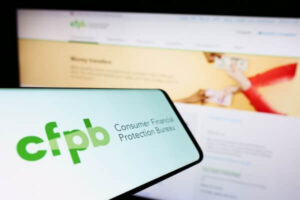Father’s Day Financial Advice … You Get What You Pay For!
Father’s Day is just around the corner and I think it’s time to change the way we celebrate the occasion at the Frugal Man’s house.
I think I will do the giving this time. I have three sons, ages 18-to-24 and they could all use some cheap financial advice.
My oldest is entering the last year of graduate school and has a mountain of student loan debt to show for it. He has no problem buying $250 shoes with nothing but a credit card to pay for it.
My second son is entering his senior year. He sees no value in student loans or credit cards, which is good, but will graduate with a credit score of zero because he won’t attach his name to any bills.
My youngest son will be a freshman and knows nothing about finance. He put away $1,000 in savings his last year in high school and is convinced that will get him through his first year of college.
Is Cheap Advice Worth It?
So cheap advice is about all any of us can afford. Much of this was passed down to me from my father, who raised nine children through the many ups and down of working at the Kennedy Space Center in Florida in the ‘60s and ‘70s.
And for the record, his favorite saying was “You get what you pay for!” Keep that in mind as you read this advice.
- You’re on your own. This is the first lesson in finance my Dad taught me. At age 12, he would buy me a $3 pair of PF Flyer sneakers. I wanted a $10 pair of Adidas. “I’ll give you $3 toward sneakers,” he said. “After that, you’re on your own.” I got a job delivering newspapers, made up the difference to score a pair of Adidas and that’s how it went the rest of the time I lived at home. He told me what he was willing to contribute toward shoes, clothes, cars, etc. and I was on my own after that. I learned that it pays to have a job, if you want to be on your own.
- Take credit when credit is due. I learned this one. When I left home, I paid all my bills in cash for seven or eight years. When I signed up for a credit card at age 23, the banks rejected me. When I went for a car loan at 25, the laughed at me. When I tried to get a mortgage at 27, they “awarded” me one … at 12 percent interest rate! I didn’t know a credit score from a boxscore at the time. Now I know how the game is played. I see the value of credit cards, as long as they are paid off every month. I’ll ease my sons into the credit world while they’re in college. After that, of course, they’re on their own.
- Invest early. There is no topping the power of compound interest. Terry Connor, the Dad across the street, was explaining his stock investments one day and suggested if any of us had $10 in the bank, we should join him buying stock in Radiation Inc., an electronics company involved in the space program in the 1960s. Radiation stock sold for 50 cents a share in 1963. I had $100 in the bank, but didn’t listen to Mr. Connor. Radiation is now Harris Corporation and my puny investment of $100 would be worth $251,360 based on Harris’ stock price in June. Invest money while you’re young and leave it alone. If you pick reliable funds, you’ll be thrilled at what you retirement fund looks like many years later.
- Count on emergencies: There are a lot of categories in financial advice, but the one that gets overlooked most often is an emergency fund. Open a bank account and start one. Only 25 percent of American families have enough in reserve to tide them over for three months. Another 25 percent have zero. The other 50 percent fall in between, mostly closer to the zero end. My Dad was laid off three times. The first time, we ate cereal for breakfast, lunch and dinner for two months. The second time, we skipped lunch and my Mom got a job and put her paycheck in an account only she could access. The third time, we were fine. Dad was out for six weeks, but it was business as usual at home. I remembered that when the economy collapsed in 2008. So did lots of my neighbors. Not all of us are still neighbors. Start an emergency fund and keep contributing small amounts until you reach at least the 3-month threshold.
- Piggy banks might be all you need. Don’t overload kids with finance lessons until they reach college. My Dad never talked about finances at home and all nine of us were thankful. We never worried about paychecks, layoffs, past due bills or retirement funds because the subjects never came up. We were kids for crying out loud! Most adults don’t understand credit, investing, budgeting, saving, etc. Why burden a child with that? They’ll be adults soon enough. Get them a piggy bank – preferably one you have to smash to get the money out of – and tell them to fill it up. That will teach them the value of saving, which is the foundation for all good financial habits.
If you’re stuck on the popular culture idea that it’s never too early to teach kids about managing debt, then here is one last thought: Don’t tell them what to do, show them.
Our family watched my Dad navigate financial land mines without worrying if it was all going to blow up. We were never scared he wouldn’t make it. We grew up relatively poor, but stress free. That is a good thing. Any kid will tell you that.
Happy Father’s Day


















